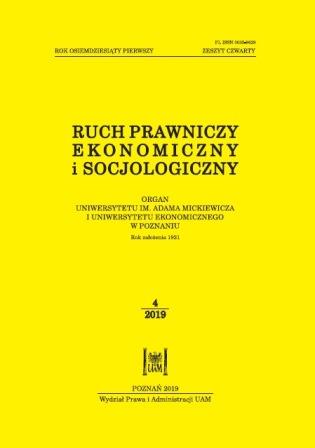Odrębności ustrojowe gmin uzdrowiskowych
The distinct legal status of spa communes
Author(s): Marta WoźniakSubject(s): Constitutional Law, Tourism
Published by: Uniwersytet Adama Mickiewicza
Keywords: spa commune (gmina); tasks; spa fee charged; spa commission; the statute; supervisory activity;
Summary/Abstract: The aim of this article is to present the distinct legal status of a spa commune (gmina) in Poland. With this aim, the considerations focus on the development of legislation on spa communes, which dates back to 1922. Nevertheless, the basis for the considerations relates to the current legal situation. In her article, the author indicates that a spa commune is a municipality of the dual legal model: standard and special. The differences are connected with a number of aspects: the area, name, tasks and spa fees charged, the spa commission, the statute and supervisory activity. They result from the specific character of these communes, which is determined by the presence of public tasks connected with providing treatment in health resorts. The conclusion is that there are two pillars on which a spa commune rests: the resource-related aspect – based on the necessity of providing very good sanitary and environmental conditions in resorts, and the human aspect – constituted by tourists. For these pillars to be managed in a proper way, the legislator has decided to grant separate legal status to these communes.
Journal: Ruch Prawniczy, Ekonomiczny i Socjologiczny
- Issue Year: 81/2019
- Issue No: 4
- Page Range: 179-189
- Page Count: 11
- Language: Polish

